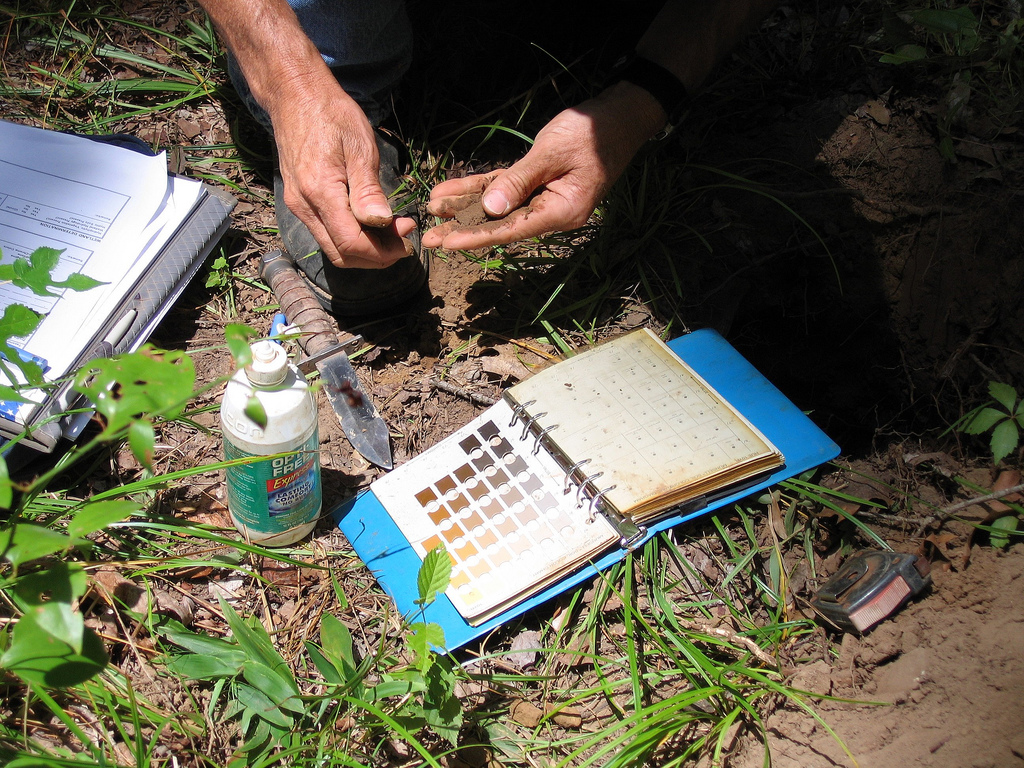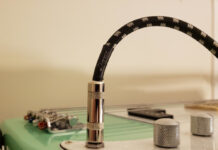
If you’re into farming or gardening, it is important to know about soil pH and how it is tested. Let’s what to look for in the best soil tester kit.
Search for soil meters or read customer reviews on Amazon.
What is soil pH?
The soil’s acidity or alkalinity is determined by its pH value, or the measure of the activity of the hydrogen ion (H+) in the soil.
The pH scale has a middle value of 7.0 which indicates neutral pH – a description that means the soil is neither acidic nor alkaline.
Soils within the pH range of 3.5-5.0 are described as highly acidic; those within 5.1-6.0 are acidic; within 6.1-6.9 slightly acidic; within 7.1-8.0 alkaline; and higher than 8.0 highly alkaline.
Why is it important to know the soil’s pH?
Soil pH affects how soil minerals and nutrients are absorbed by the plant.
The pH for general purpose gardens is ideally within the range of 6.1-7.5.
Certain plants, however, thrive below or above that range.
Soil pH greatly affects the activity of microorganisms and optimal effect of agricultural inputs to the plants.
How is soil pH determined?
There are various ways to test soil pH, including professional soil analysis performed by agricultural service companies and private laboratories.
Most gardeners, however, prefer to do home soil testing using soil pH kits because they are generally cheap and easy to use.
The only issue with these kits is the reliability and accuracy of results they provide.
Thus, it is important to carefully choose the soil pH testing kit you’re going to buy.
What must I look for in a soil pH testing kit?
Large sample used in testing – read about the kits advertised and find out about the testing procedure.
Testing kits that use large soil samples at one time will give an overall result that is representative of the average pH.
Very small samples, such as less than a teaspoon of soil, may contain some elements that will throw off the result from the overall acidity or alkalinity of the soil.
Wide range of pH measured in the case of colorimetric test kits – choose kits that provide a wide range for the reading, preferably from 3.0 to 10.0 pH.
This allows for more accurate readings. For instance, a color box indicating a pH of 4.0 and another box for 5.0 will allow you to distinguish between the pH of 4.0 and 5.0.
With fewer color boxes, a color box may be designated as 3.0-5.0, allowing no distinction between pH readings within that range.
Some kits may also give readings by half pH units (0.5 pH) or less, which is preferable.
Other tests included – some soil test kits measure pH levels exclusively, but there are other kits that combine pH testing with NPK (nitrogen, phosphorus, potassium) testing.
The more tests offered, the more expensive the kits cost.
These soil nutrients also need to be measured along with pH levels for better soil management.
Nutritive values are not often given numerically, but are instead given as descriptive categories (high, medium and low).
Clear instructions – look for manuals or user’s guide, equivalent values, color card, and other references for interpretation of results. Fonts must not be too small to read comfortably.
Easy to use – whether for nutrient management of crops or for keeping plants healthy for landscaping purposes, the kit must be easy for you to use.
There are kits that include strips and reagents for manual testing, while others include digital soil pH meters. More elaborate test kits contain test tubes, liquid reagents and various materials.
They are often more expensive, but not necessarily more accurate.
Colorimetric kits are simple and quick to use.
Digital readers need battery replacements and calibration from time to time. Sensors operate on limited life span.
Reasonably priced – the price of soil pH test kits ranges from $10-$20.
Kits can be used for several sample tests (some kits offer 40 tests, others 80); so one way of comparing will be by the number of tests a kit can perform and calculating the cost per test.
In comparison, laboratories charge around $10 per sample tested.
Kits for combined pH and NPK testing may range from $20-$50, still reasonably cheap compared to $30-$70 per sample test for comprehensive soil analyses conducted by laboratories.
Reviews – look for soil pH tester reviews by verified buyers and read about first-hand experience about the product.
This will lend a balance to the promotional descriptions and claims by the manufacturer.
A reliable soil pH tester is important to avoid wasteful soil fertilizing, enhance plant growth, lower cost, prevent soil toxicities, and improve your project’s success rate.
Results from these kits are obtainable within the day, unlike results from laboratories which usually take a week or more.
Find the best soil test kit in 2023 on Amazon.
Originally posted 2023-01-06 04:11:31.


